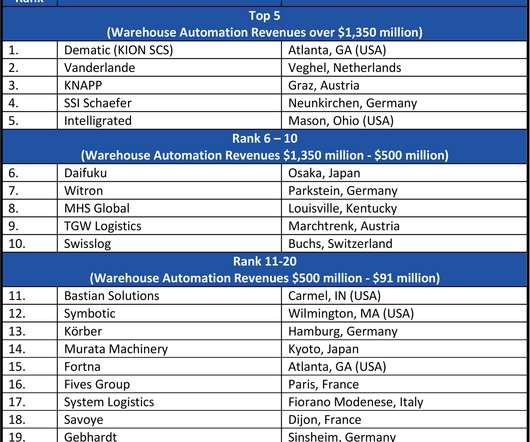Top 20 Warehouse Automation Suppliers Worldwide
Logistics Viewpoints
OCTOBER 26, 2022
ARC defines the warehouse automation market according to a number of qualifications and dimensions to deliver a well-defined measure, with numerous segmentations, allowing those that purchase the research to understand what is being measured, and to easily extrapolate the findings to support their strategic planning needs.
















Let's personalize your content